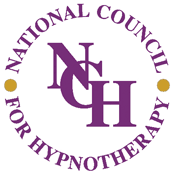First please click here to book your Hypnotherapy Sessions which will be confirmed fully whenyour deposit has been paid. Its best to book online first and arrange the deposit.
Location: London Cognitive Hypnotherapy Sessions take place at 36 St Michaels St London W2 1QX unless otherwise arranged.
- Please arrive promptly at your appointment time.
- Your booking is only confirmed on receipt of a deposit of £50. The balance to be paid in full on or before commencement of treatment (1st appointment) by Bank Transfer, PayPal which accept most major Debit and Credit cards or cash. (Please advise on your preferred payment method in advance):
- Paypal patricklilley@me.com
- Fee is for therapists time. Session times once booked should be kept to, however in the event that session times need to be changed therapist and client agree to provide each other with24 hours notice so that another session can be rescheduled. Session times, where it is possible, should be at a regular time, weekly. If you require greater flexibility please advise your therapist. Use the booking system by clicking here to re-arrange your bookings.
- For optimum success the client agrees to make reasonable use of therapeutic suggestions between sessions including listening to cds/mp3s and use reasonable efforts to adopt mutually agreed therapeutic suggestoins or actions (eg nutritional and behavioural suggestions for wellness).
- Hypnotherapy Cds/mp3s should never be listened to while driving or operating heavy machinery.
- Contact between sessions will be by to telephone, email or letter during office hours (11am – 8pm). To arrange a client call back please email or text with your suggested time.
- Antisocial behaviour will cause the immediate cessation of treatment.
- The agreement to work on the issues presented by the client in no way guarantees a cure. However the therapist agrees to use his best efforts and skills to work towards the relief and achievement of agreed therapeutic goals.
- Confidentiality will be maintained in all but the most exceptional circumstances. These can only include: legal action (criminal or civil court cases where a court order is made demanding disclosure – includes coroners courts) and where there is good cause to believe that not to disclose would cause danger of serious harm to others. Most standards of confidentiality applied in professional contexts are based on the Common Law concept of confidentiality where the duty to keep confidence is measured against the concept of “greater” good. The sharing of anonymous case histories with supervisors and peer-support groups is not a breach of professional confidentiality. The sharing of open case histories with supervisors and any referring NHS medical practitioner is also not a breach.





